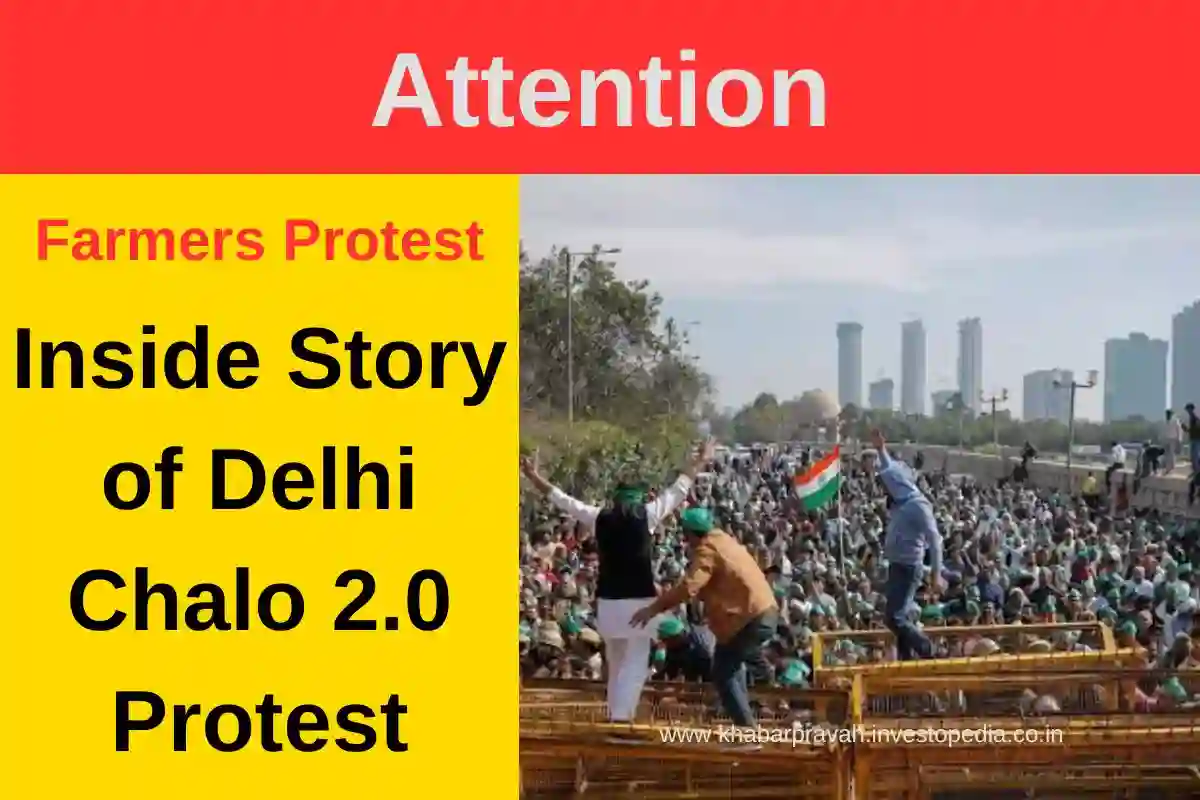|
Getting your Trinity Audio player ready... |
Delhi Chalo 2.0: The Rekindled Farmers Protest and Their Core Demands
Key Points:
- Farmers from Haryana, Punjab, and Uttar Pradesh are protesting in Delhi.
- Demands include MSP guarantee, Swaminathan Commission implementation, and justice for violence victims.
- March toward Delhi ensued after failed government talks.
- Haryana reinforced borders with Punjab to deter protestors.
Introduction:
Farmers from Haryana, Punjab, and Uttar Pradesh rally in Delhi demanding MSP assurance and justice.
In a resurgence of fervor, farmers predominantly hailing from Haryana, Punjab, and Uttar Pradesh are poised to embark on a march towards Delhi, commencing Tuesday, with the aim of exerting substantial pressure on the government to accede to their demands. Chief among these demands is the establishment of a legal guarantee for Minimum Support Price (MSP) across various crops.
The Samyukta Kisan Morcha (a non-political entity) and the Kisan Mazdoor Morcha have jointly declared the intent of farmers to advance towards Delhi, following the impasse reached in discussions between farmer union leaders and governmental representatives.
The multifaceted demands of the farmers encapsulate the following imperatives: a statutory assurance for minimum support price (MSP), the effective implementation of the recommendations outlined by the Swaminathan Commission, provision of pensions for both farmers and agricultural laborers, amnesty concerning farm debts, retraction of pending police charges, redressal for the victims of the lamentable Lakhimpur Kheri violence, restoration of the Land Acquisition Act of 2013, disengagement from commitments with the World Trade Organization, and the provision of compensation to the families of deceased farmers who participated in previous protests, among other pertinent issues.
In a bid to dissuade the planned procession, authorities in Haryana have bolstered the state’s borders with Punjab in Ambala, Jind, Fatehabad, Kurukshetra, and Sirsa, employing various deterrents such as concrete barriers, iron spikes, and barbed wire installations. Furthermore, the imposition of Section 144 of the Criminal Procedure Code (CrPC) across 15 districts of Haryana restricts gatherings exceeding five individuals, alongside prohibiting demonstrations or processions involving tractor trolleys.
Securing a Legal Assurance for Minimum Support Price (MSP)
At the forefront of the farmers’ demands lies the issue of MSP, denoting the price at which the government procures crops from farmers, thereby ensuring a stable income source for agricultural producers. This mechanism functions as a vital safeguard, guaranteeing farmers a fair remuneration for their yields, particularly during periods marked by market volatility or when prevailing prices plummet below the MSP threshold. The government’s commitment to uphold MSP principles formed a pivotal condition for the cessation of the farmers’ year-long protest along the fringes of Delhi in 2020-21.
Compensation for the Deceased Farmers in Lakhimpur Kheri Tragedy
The farmers ardently advocate for stringent action against the perpetrators of the tragic events that transpired in Lakhimpur Kheri on October 3, 2021, where four protesting farmers met their untimely demise as a result of a vehicular collision. Ashish Mishra, the son of Union Minister Ajay Mishra, stands identified as the primary accused in this lamentable incident.
Resolution of Pending Legal Cases
Demanding the withdrawal of charges leveled against participants of the protracted farmers’ movement spanning 2020-21 constitutes another crucial aspect of the farmers’ stance.
Restoration of the Land Acquisition Act of 2013
In their quest for justice, farmers advocate for equitable compensation for lands acquired by diverse authorities for developmental undertakings. Moreover, they advocate for the allocation of 10% of residential plots within developed areas for the benefit of farming communities. Farmers contend that prevailing compensation rates are insufficient, resulting in their dispossession. They highlight instances where compensation from entities such as the Noida Authority, Greater Noida Authority, and Yamuna Authority, typically amounting to 5 to 7% of the total land acquired, fails to adequately address their losses incurred through land acquisition at substandard rates in preceding years.
Withdrawal from the World Trade Organization
Furthermore, farmers insist on the cessation of engagement with the World Trade Organization, coupled with the suspension of ongoing trade agreements.
Compensation for Families of Deceased Farmers from Previous Protests
Lastly, the farmers advocate for government compensation to be extended to the families of those who lost their lives during prior protests.
This post is for informational purposes only.Invest responsibly.No guarantees of results. Seek professional guidance before investing.Consult experts for personalized advice.AI-assisted content, editorially reviewed.See our terms for details.Please note that I am not a SEBI registered investment advisor. The information provided in this article is for informational and educational purposes only and should not be construed as financial advice. Always consult with a qualified and SEBI registered financial professional before making any investment decisions. .Follows Google policies.Not affiliated with Investopedia.com. investopedia.co.in Independent site.







